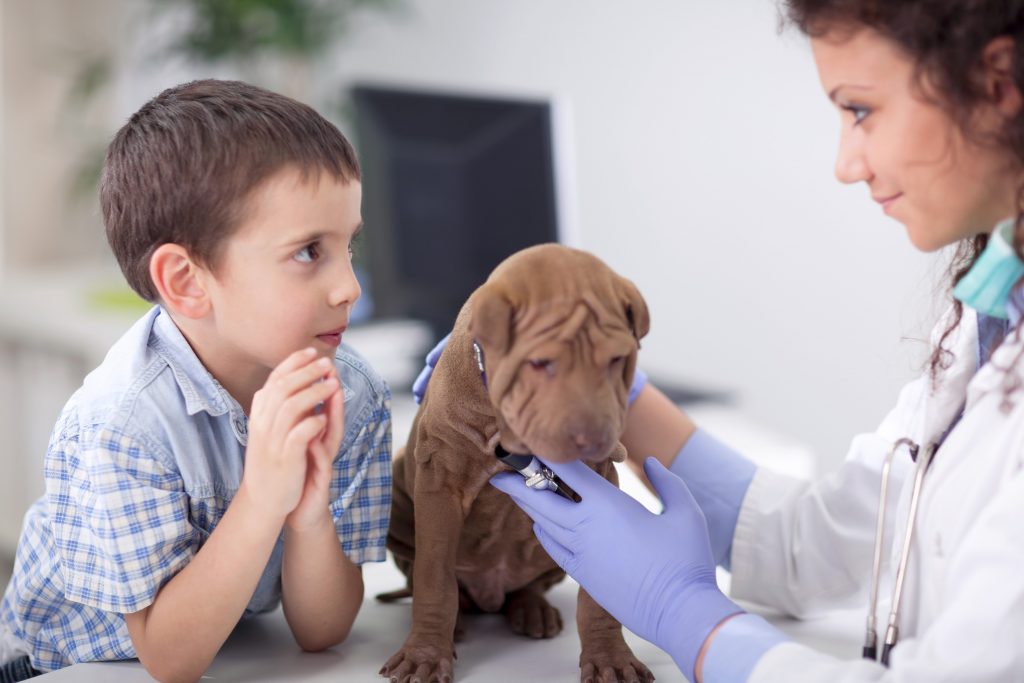Canine Parvovirus (CPV) is an extremely contagious virus that is life threatening and is most likely to affect non-vaccinated puppy’s between the ages of 6 weeks to 6 months.
CPV is easily transmitted through infected fecal contact, and high-risk areas would include dog parks, kennels, or any high traffic areas. Your puppy may be on their daily walk and stumble upon a contaminated sample left behind by another dog enjoying the beautiful day, or you may bring it into your home by simply having trace fecal residue on your shoes and just like that you loving puppy could become very ill.
Evidence shows that the CPV can live in the soil for up to a year, so even in the winter your dog can still come in contact with the virus. The CPV is pretty resistant to most cleaners, bleach is one of the few cleaners that is able to kill the virus.
Dogs that develop CPV shows signs with in 3-10 days after being exposed and symptoms of parvovirus include lethargy, sever vomiting, extreme foul smelling bloody diarrhea, loss of appetite, and sever dehydration. All of these symptoms can be life threatening and need to be treated ASAP!
If you suspect your dog may have come into contact with or showing signs of Parvo they need to be seen by a vet promptly, and treatment is a must, for you puppy to have the best chance of survival. Since CPV is a viral infection there is no real cure for it; the treatment is focused on curing the symptoms and preventing secondary infections.
Treatment includes intensive IV fluid therapy, medications to help control the vomiting and diarrhea, nutrition therapy, antibiotic and hospitalisation which are all key to recovery. The survival rate is 70% if treatment is started right away. The best way to preventing your dog from getting the awful virus is to vaccinate!
Your puppy requires a set vaccination protocol designed by your veterinarian for your pets best protection. This protocol includes boosting the initial vaccination which is extremely important in keeping your dog protected, your puppy should not be in contact with any other dogs until 2 weeks after their final vaccination, and always pick up after your pet!
If you have any question regarding Canine Parvovirus please phone us at (902) 827-4257, one of the team members would gladly help answer any question you may have, and help you get you puppy on a safe plan in protecting him or her from the awful parvovirus.
Written by Natasha Cavanagh
